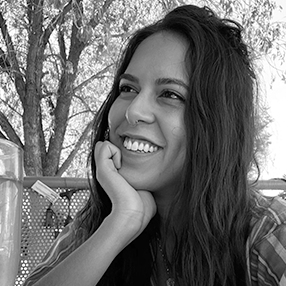To a Young Poet
I don’t usually write because I’m too busy being afraid of it. Not of writing but the it. It’s more like breaking open a fruit. Not to taste but to see what bleeds out. Here is a country. Here is a person in that country who has no papers but digs holes in the earth, plants trees, buries his shadow. The country hates him and hates me too, a little less, because I have papers. A document is a strange thing. To ask the placenta for its numerical origin. To tell the dirt it belongs to you. Poets should be concerned with how an empire makes us hate the people without papers. Who could be us, who are us, but temporarily less human because it is convenient for the jobs. The jobs are too important to stop the bombs that burn the flesh of the children who were my face as a child, but I live here, with papers. I call it my life. This language is a chain of accidents. What I’m trying to say is no one gives a fuck about your poems but write them anyway. If you’ve got a body, a pen, a shadow that follows you like a dog, then make it mean something. You are alive among flesh explained back to us as furniture. Hope is a tax. Each word—say it aloud—I am here—is a coin, a debt owed to love. Take the echo seriously. Our living is the plot to sing completion. Let it fill you, let it bruise. Greet the stranger: did you know we share a wick?
Copyright © 2025 by Zaina Alsous. Originally published in Poem-a-Day on February 13, 2025, by the Academy of American Poets.
“This poem borrows its name from a Mahmoud Darwish poem, translated by Fady Joudah. It is a reflection on presence: where we place ourselves in the order of things, whom we live for, what we write toward. In his essay on ‘Estranged Labour,’ Marx writes, ‘The devaluation of the human world grows in direct proportion to the increased value of the world of things.’ I’m interested in what we can learn from the workers who risk their lives to cross empire’s borders to care for their families and from the people in Gaza who have resolutely insisted on collective survival in the face of genocide: a counter relationship to the process of alienation; life as the insistence of the preciousness of life.”
—Zaina Alsous

